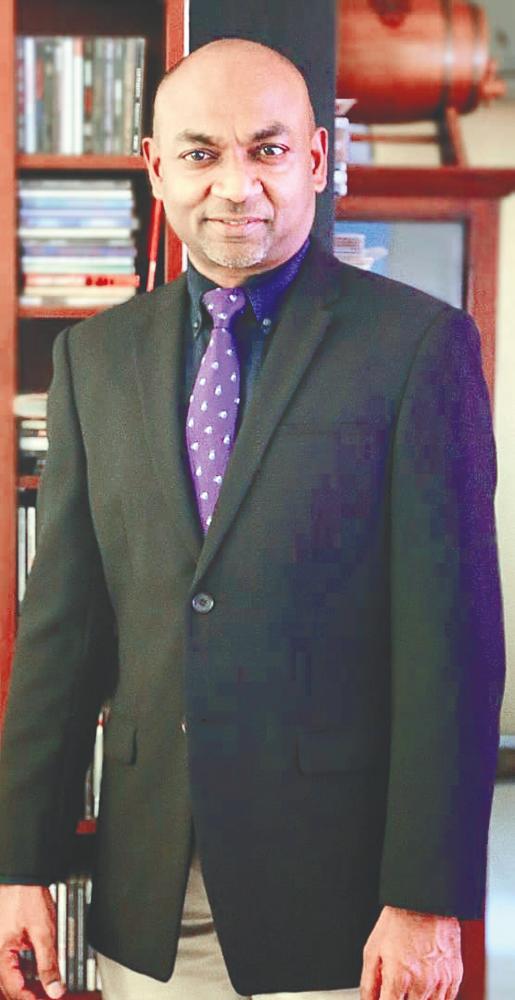RIGHT now as the world is reeling from a pandemic caused by the Covid-19 virus, some seem to do well during this period, while others struggle.
We contacted Dr Subash Kumar Pillai, a consultant psychiatrist (Raintree Specialist Clinic Petaling Jaya) to talk about depression and how the current situation might affect those already diagosed with it and might actually trigger it in others.
What are the key triggers for depression during times like these?
“There are many triggers for depression. Most of the times it is related to how we are able to cope in a given situation or deal with a problem.
“In relation to the MCO many of our patients have no choice but to be at home. For many people being at home may not be an issue but for some it is.
“Some of our patients have unresolved or ongoing issues with family members. So there is definitely going to be an unhealthy environment to be in. Most likely there is going to be more conflicts or arguments during the MCO.”
“It is important to understand the personal triggers for depression or low mood. In that way we can manage our expectations and maybe be better prepared for issues.
“Common triggers include being alone or having no space for themselves. Having too many people in a closed environment or dealing with family members with unresolved issues. Work for many people seemed to have been a space for them to escape from these situations.
“So many seem to be dealing with anxiety and depression that has flared up during the MCO.Work also may be a place for someone to find a purpose or a goal.”
Can social media ever take the place of face-to-face interaction?
“I don’t think social media can replace face to face interaction but video calls may be a choice that we have to use at this time. Video calls have been very helpful for many of my patients during the MCO.
“But having said that, I have been using video calling apps even before the MCO.
“Sometimes it is just practical when patients are living out of the state. Sometimes they may need to come in for the first few visits and once stable we can do video calls.
“I think we should utilise the technology available. Maybe some doctors are uneasy or uncomfortable about video calls as it is not the tradition.
“But I feel some of these new technologies has made it better and convenient for many patients who are out of town.”
People with preexisting medical conditions such as cancer, lifestyles diseases and autoimmune diseases are currently facing more stress due to various factors. How can the rest of us help?
“It is always important to be supportive to any patient. We have to be empathetic to any one who is dealing with any form of stress. The MCO can affect anyone but it has adversely affected many patients with serious illnesses.”
If you live with someone who has some sort of mental disorder, what can you the caregiver do to keep their heads above water?
“Caregivers are often overlooked, [despite being] an integral part of the patients well being. I think sometimes we forget to ask the caregiver how they feel, and how they are managing. Caregiver burnout and depression or anxiety is not uncommon and most doctors are able to pick this up.
“The best way is to also ask the caregiver how they feel and look out for some early signs of stress and depression. Early signs are usually sleep disturbances and lack of motivation, irritability and frustration.
“Sometimes a referral to a counsellor can do a lot of help or just getting them to take a break. It is important that caregivers take care of their mental health and understand that they are able to take care of a patient only if they are well.
“In many ways [it is] similar to a doctor who also has to manage his mental health as well when dealing with patients.
“Everyone needs a bit of space. Having space is important, and knowing where to draw the line. Managing expectations and understanding our own limits as a human being goes a long way. We are not robots and all of us, especially caregivers, need time to rest and relax.”
After the MCO is lifted, what kind of problems do you forsee? In Wuhan some people are displaying signs of Post Traumatic Stress Disorder (PTSD) and are afraid to venture out of their home.
“I don’t think I will be seeing PTSD but many would be relieved after the end of the MCO. However I think we are going to see an increasing amount of anxiety about cleanliness and dirt, as well as anxiety about health in general.
“In fact I am already seeing an increase of anxious patients at this time.”
Are there simple exercises or routines we can adopt to help us cope through these very trying times?
“The MCO has made us to be a little more creative in the way we exercise which is good. We cannot go jogging or go to the gym or the pool. So many have opted to do yoga and meditation.
“I think simple aerobics, push ups, carrying weights, and isometric workouts make a huge difference. I even heard about someone who ran a marathon at home. Revisiting hobbies, spending time with family, video calls with friends, gardening and cooking can also help.”









